Professor Su Bing from Shanghai Jiaotong University Visited IBP and Gave a Bei Shizhang Lecture
On June 7, 2021, Professor Su Bing from Shanghai Jiaotong University was invited by IBP to be a guest at the Bei Shizhang Lecture, and delivered a report entitled MAPK-WNT Signal Regulates Intestinal Damage and Repair Through New Intestinal Mesenchymal Cells. This lecture was hosted by Professor Bu Pengcheng.
Professor Su Bing has been engaged in the research of immune regulation and signal transduction in intestinal inflammation-related diseases for a long time, especially in the regulation mechanism of MAPK and mTOR signal pathway, and has achieved a series of original discoveries. He has published more than 100 research papers in journals including Cell, Nature, Nature Genetics and Nature Immunology. It has been cited by more than 15,000 times. Professor Su Bing is selected into the National Overseas High-Level Talent Program and Shanghai Overseas High-Level Talent Program in 2021. He is currently the Editor-in-Chief of Current Immunology, Deputy Editor-in-Chief of JMCB, and an expert of the Evaluation Committee of the National Natural Science Foundation of China's major projects and the National Overseas High-level Talents Program.
In this report, Professor Su Bing first reviewed the research history of the MAPK signaling pathway in the laboratory over the past two decades, and summarized the research on the function and mechanism of the MAPK signaling pathway in immune regulation and angiogenesis. MAPK signal is a key signal pathway that regulates cell proliferation, differentiation, and apoptosis. It has been widely expressed in various tissues and cells since early embryonic development. Professor Su Bing's team recently discovered a group of new mesenchymal cells (MRISC) located at the bottom of the small intestine crypts that specifically express MAP3K2 kinase through single-cell sequencing. Further studies found that this group of cells was an important part of the intestinal stem cell niche, the main source of the WNT signal activator R-spondin1, and played an important role in the process of intestinal injury repair. It is shown in mechanism studies that the ROS-MAP3K2-ERK5-KLF2 pathway was vital to promote the production of R-spondin1.
Professor Su Bing's report showed a series of achievements of his research team in the MAPK signal pathway research of the past two decades, and helped the audience to have a deeper understanding of this field. After the report, the teachers and students actively exchanged ideas with Professor Su Bing.
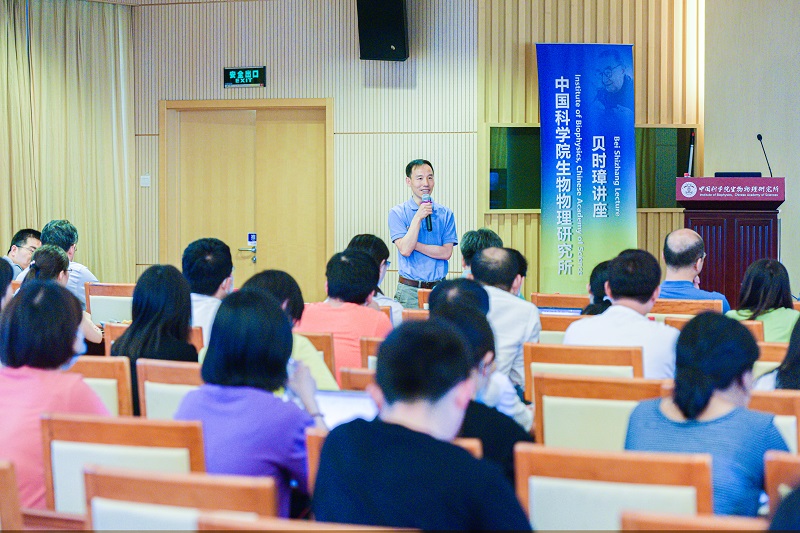
Professor Bu Pengcheng hosted the lecture
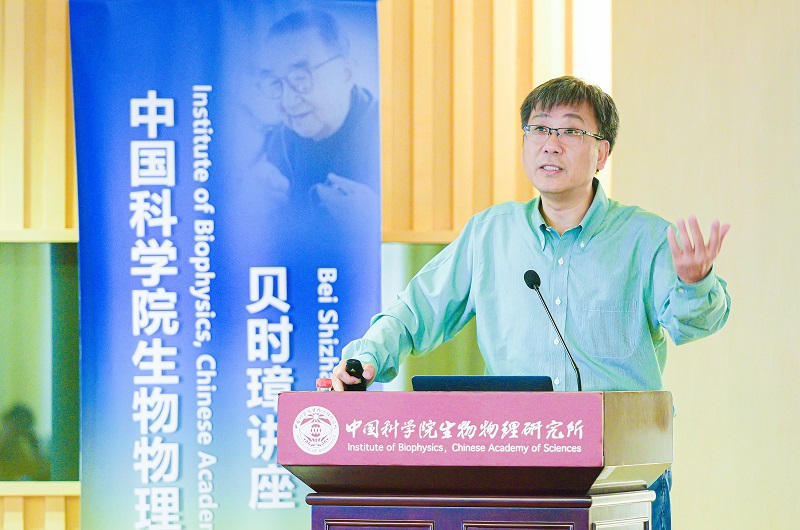
Professor Su Bing was giving the lecture
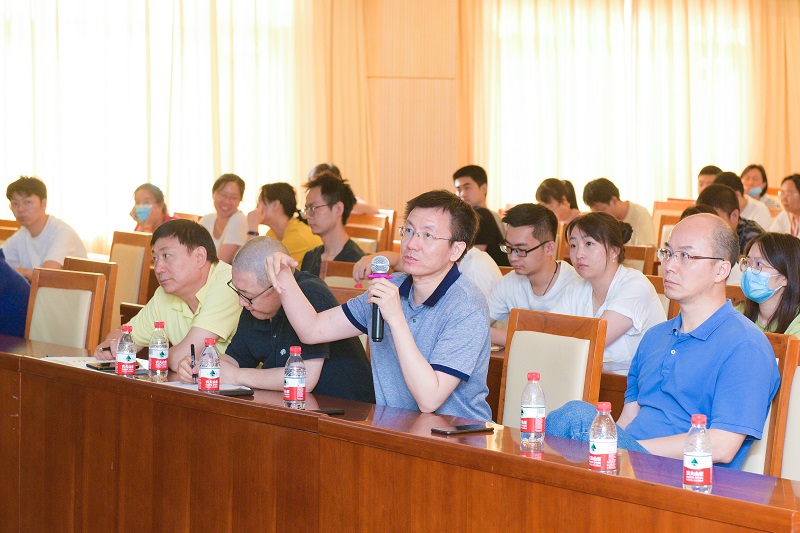
Researchers communicated with Professor Su Bing
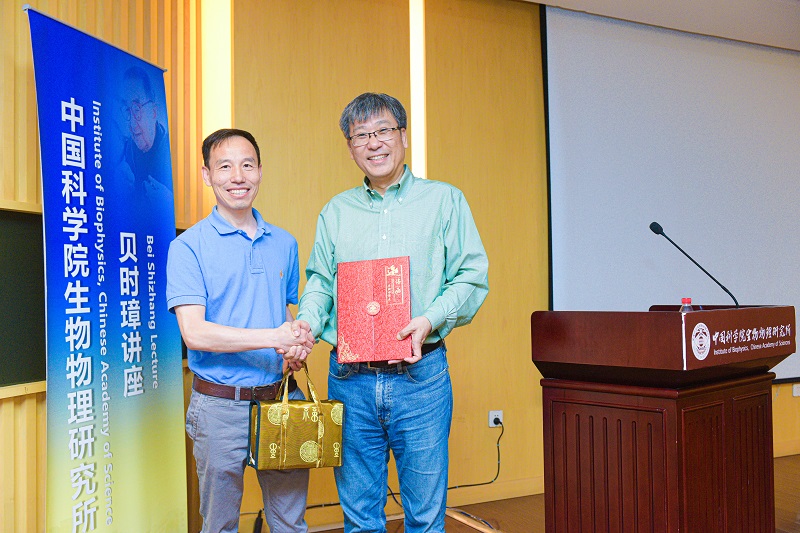
Professor Bu Pengcheng and Su Bing
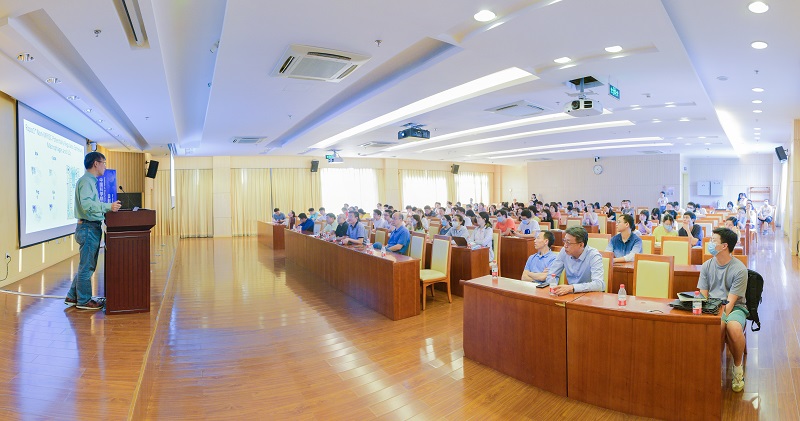
The audience

